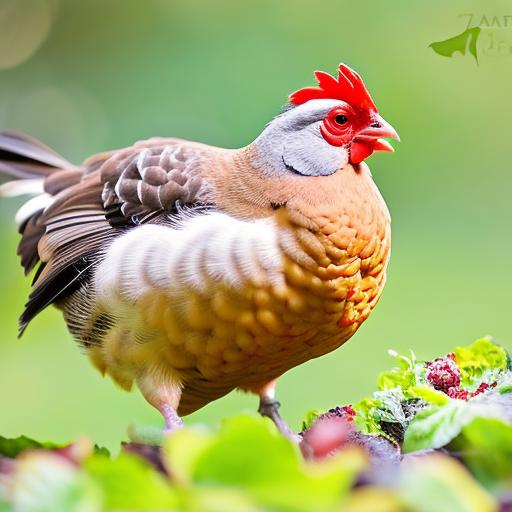Keeping live chickens in your garden can be a rewarding and beneficial experience. Not only do chickens provide fresh eggs, but they also offer natural pest control and fertilizer for your plants. Having chickens in your backyard can be a fun and educational activity for the whole family. In this article, we will explore the various benefits of keeping live chickens in your garden and provide tips on how to successfully raise them.
Key Takeaways
- Keeping live chickens in your garden provides fresh eggs, natural pest control, and fertilizer for your plants.
- It is important to understand local laws and regulations for keeping chickens, including zoning and noise ordinances.
- Choosing the right breed of chicken for your garden depends on factors such as egg production, temperament, and climate adaptability.
- Building a coop and run for your chickens requires consideration of space, ventilation, and predator protection.
- Feeding and watering your chickens requires a balanced diet and clean water, with supplements such as grit and oyster shells.
- Health and safety considerations for your chickens include regular check-ups, vaccinations, and biosecurity measures.
- Managing waste and odor from your chickens involves proper disposal and composting techniques.
- Protecting your garden from chicken damage can be achieved through fencing, netting, and designated areas for foraging.
- Harvesting fresh eggs from your chickens requires proper storage and handling techniques.
- Building a community of chicken keepers in your area can provide support, resources, and shared knowledge.
Benefits of Keeping Live Chickens in Your Garden
One of the main benefits of having chickens in your garden is the abundance of fresh eggs they provide. There is nothing quite like collecting eggs from your own backyard and enjoying them for breakfast. Not only are fresh eggs delicious, but they are also more nutritious than store-bought eggs. Chickens that are allowed to roam freely in a garden have access to a variety of insects, worms, and plants, which results in eggs that are higher in omega-3 fatty acids and vitamins.
Another benefit of having chickens in your garden is their natural pest control abilities. Chickens love to eat insects, slugs, and snails, which can be a nuisance in a garden. By allowing chickens to roam freely in your garden, you can reduce the population of these pests without the need for harmful chemicals. Additionally, chickens will also eat weed seeds, helping to keep your garden weed-free.
Chickens also provide an excellent source of fertilizer for your plants. Their droppings are rich in nitrogen, phosphorus, and potassium, which are essential nutrients for plant growth. By allowing chickens to roam freely in your garden or by using their droppings as compost, you can improve the health and productivity of your plants.
Understanding Local Laws and Regulations for Keeping Chickens
Before getting chickens for your garden, it is important to research and understand the local laws and regulations regarding keeping chickens. Some cities or neighborhoods may have restrictions on the number of chickens you can have, the size of your coop, or the distance between your coop and neighboring properties. It is important to comply with these regulations to avoid any legal issues or conflicts with your neighbors.
To find out about local laws and regulations, you can start by contacting your local government or zoning department. They will be able to provide you with information on any restrictions or permits required for keeping chickens. You can also reach out to local chicken keeping groups or organizations for guidance and support.
Choosing the Right Breed of Chicken for Your Garden
When choosing the right breed of chicken for your garden, it is important to consider factors such as temperament, egg production, and climate adaptability. There are many different breeds of chickens, each with its own characteristics and qualities.
If you are looking for a breed that is friendly and good with children, consider getting a breed such as the Orpington or the Sussex. These breeds are known for their calm and docile nature. If you are primarily interested in egg production, breeds such as the Rhode Island Red or the Leghorn are excellent choices. These breeds are known for their high egg production rates.
It is also important to consider the climate in your area when choosing a breed of chicken. Some breeds are more cold-hardy, while others are better suited for hot climates. Research different breeds and consult with local chicken keepers to determine which breed will thrive in your specific climate.
Building a Coop and Run for Your Chickens
Having a coop and run for your chickens is essential for their safety and well-being. A coop provides shelter for your chickens at night and protects them from predators, while a run allows them to have access to fresh air and exercise during the day.
When building a coop, it is important to consider factors such as size, ventilation, and security. The coop should be spacious enough to accommodate all of your chickens comfortably, with enough room for them to move around and perch. It should also have proper ventilation to prevent the buildup of moisture and odors. Additionally, the coop should be secure, with sturdy walls and a predator-proof design.
The run should be large enough to allow your chickens to roam and forage. It should be enclosed with a fence or wire mesh to prevent predators from entering. The run should also have a roof or cover to protect your chickens from the elements.
Feeding and Watering Your Chickens

Feeding and watering your chickens properly is essential for their health and well-being. Chickens require a balanced diet that includes a combination of grains, protein, fruits, vegetables, and calcium.
A good quality chicken feed should be the main component of their diet. Look for feeds that are specifically formulated for laying hens, as these contain the necessary nutrients for egg production. In addition to feed, chickens also enjoy foraging for insects, worms, and plants in the garden. You can supplement their diet with kitchen scraps such as fruits, vegetables, and grains.
It is important to provide fresh water for your chickens at all times. Chickens require clean water for hydration and egg production. Make sure to clean and refill their water containers regularly to prevent the buildup of bacteria.
Health and Safety Considerations for Your Chickens
Keeping your chickens healthy and safe is crucial for their overall well-being. Regular health checks, proper hygiene, and predator prevention measures are important aspects of chicken care.
Perform regular health checks on your chickens to ensure they are in good condition. Look out for signs of illness or injury such as lethargy, loss of appetite, or abnormal behavior. If you notice any issues, consult with a veterinarian who specializes in poultry.
Maintaining proper hygiene in the coop is essential for preventing the spread of diseases. Clean the coop regularly by removing soiled bedding and replacing it with fresh bedding. Regularly disinfect the coop and nesting boxes to kill any bacteria or parasites.
Predator prevention measures are important for keeping your chickens safe. Secure the coop and run with sturdy fencing or wire mesh to prevent predators from entering. Install locks on doors and windows to ensure that predators cannot gain access. Additionally, consider using motion-activated lights or alarms to deter predators.
Managing Waste and Odor from Your Chickens
Managing waste and odor from your chickens is important for maintaining a clean and healthy environment. Chicken droppings can be a valuable source of fertilizer, but if not managed properly, they can create unpleasant odors and attract pests.
One way to manage waste is by using a deep litter system in the coop. This involves adding a layer of bedding material such as straw or wood shavings to the floor of the coop. As the chickens scratch and move around, their droppings get mixed with the bedding, which helps to break down the waste and control odor. Regularly turning and adding fresh bedding will help maintain a clean and odor-free coop.
Another way to manage waste is by composting chicken droppings. Chicken manure is high in nitrogen, which makes it an excellent addition to compost piles. However, it is important to compost chicken manure separately from other compost materials, as it can be too strong for some plants if not properly composted.
Protecting Your Garden from Chicken Damage
While chickens can provide many benefits to your garden, they can also cause damage if not properly managed. Chickens have a natural instinct to scratch and dig, which can result in uprooted plants and damaged soil.
To protect your garden from chicken damage, consider using fencing or wire mesh to create designated areas where chickens are allowed to roam. This will prevent them from accessing areas where you do not want them to go, such as vegetable beds or flower gardens.
You can also create designated areas for your chickens to scratch and forage. By providing them with a designated space, you can control where they dig and minimize damage to your garden. Consider creating a chicken-friendly garden area with plants that are safe for chickens to eat, such as herbs or leafy greens.
Harvesting Fresh Eggs from Your Chickens
One of the joys of keeping chickens in your garden is the ability to harvest fresh eggs. To ensure that your eggs are safe and of high quality, it is important to follow proper egg handling and storage practices.
Collect eggs from the nesting boxes daily to prevent them from getting dirty or damaged. Inspect each egg for cracks or abnormalities before storing them. If you find any cracked eggs, discard them immediately, as they can harbor bacteria.
Store eggs in a cool and dry place, such as a refrigerator. It is best to store them with the pointed end down to help maintain their freshness. Fresh eggs can be stored for up to one month, but it is recommended to use them within two weeks for optimal taste and quality.
Building a Community of Chicken Keepers in Your Area
Building a community of chicken keepers in your area can be a valuable resource for support, advice, and friendship. Connecting with other chicken keepers allows you to share experiences, learn from each other, and exchange tips and ideas.
To build a community of chicken keepers in your area, consider joining local chicken keeping groups or organizations. These groups often organize events, workshops, and meetups where you can connect with other like-minded individuals. You can also reach out to neighbors or friends who may be interested in keeping chickens and start a local chicken keeping group.
Building a community of chicken keepers not only provides support and knowledge but also helps to promote responsible chicken keeping practices in your area.
Keeping live chickens in your garden can be a rewarding and beneficial experience. From fresh eggs to natural pest control and fertilizer, chickens offer a range of benefits for your garden. By understanding local laws and regulations, choosing the right breed, building a coop and run, and providing proper care and nutrition, you can successfully raise chickens in your backyard. Consider the benefits and joys of keeping live chickens in your garden and start your own flock today.
If you’re considering keeping live chickens in your garden, you’ll definitely want to check out this informative article on Poultry Wizard. They have a range of helpful resources for chicken enthusiasts, including tips on building a farmhouse chicken coop (source), transforming a shed into a chicken coop (source), and even chicken coop run plans (source). Whether you’re a beginner or an experienced chicken keeper, these articles will provide you with valuable insights and practical advice to create a comfortable and safe environment for your feathered friends.
FAQs
What are the benefits of keeping live chickens in your garden?
Keeping live chickens in your garden can provide you with fresh eggs, natural pest control, and fertilizer for your garden. They can also be great pets and provide entertainment.
What are the legal requirements for keeping live chickens in your garden?
The legal requirements for keeping live chickens in your garden vary depending on your location. It is important to check with your local government to see if there are any zoning laws or regulations that apply to keeping chickens.
What kind of space do chickens need in a garden?
Chickens need a minimum of 4 square feet of space per bird in their coop and 10 square feet of outdoor space per bird. It is important to provide them with a safe and secure area to roam and forage.
What do chickens eat?
Chickens are omnivores and eat a variety of foods including grains, vegetables, fruits, and insects. It is important to provide them with a balanced diet and access to clean water.
What are the health risks associated with keeping live chickens in your garden?
There are some health risks associated with keeping live chickens in your garden, including the potential for salmonella contamination. It is important to practice good hygiene and sanitation when handling chickens and their eggs.
What kind of care do chickens require?
Chickens require daily care including feeding, watering, and cleaning their coop. They also need regular health checks and protection from predators. It is important to provide them with a safe and comfortable living environment.
Meet Walter, the feathered-friend fanatic of Florida! Nestled in the sunshine state, Walter struts through life with his feathered companions, clucking his way to happiness. With a coop that’s fancier than a five-star hotel, he’s the Don Juan of the chicken world. When he’s not teaching his hens to do the cha-cha, you’ll find him in a heated debate with his prized rooster, Sir Clucks-a-Lot. Walter’s poultry passion is no yolk; he’s the sunny-side-up guy you never knew you needed in your flock of friends!







